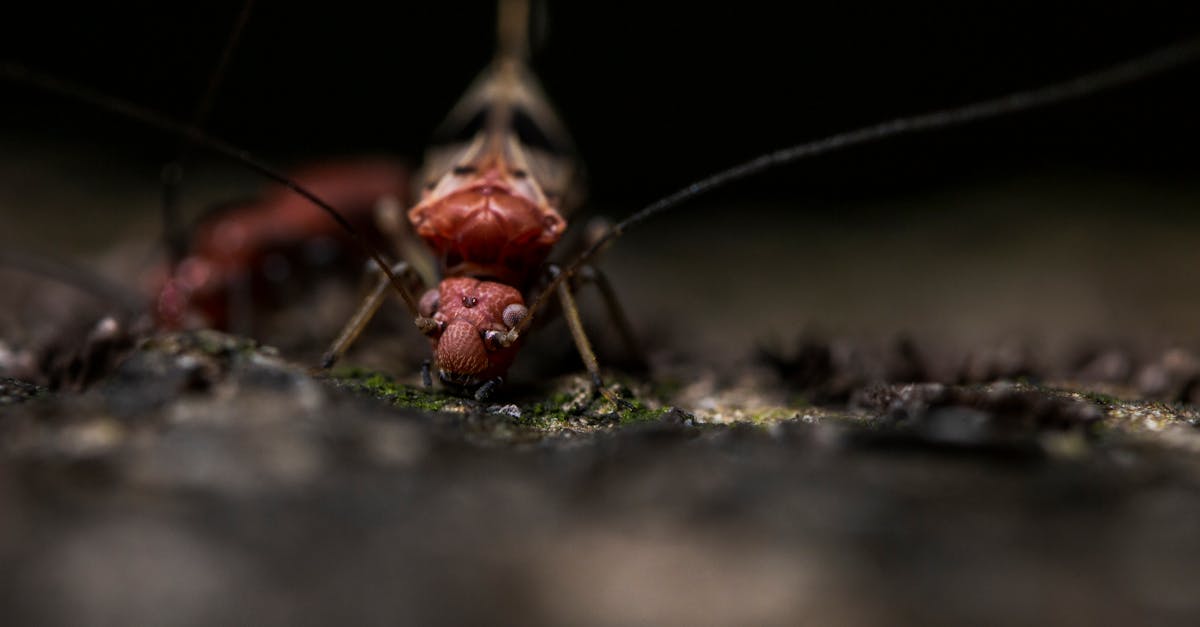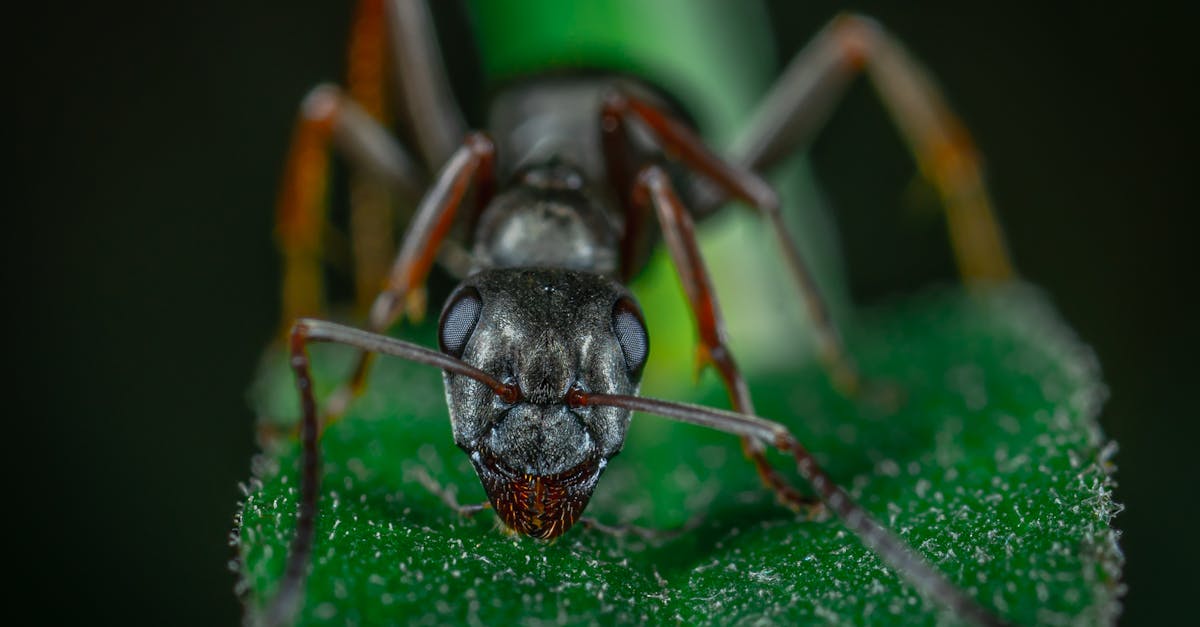Discovering the World of Ant-Keeping
An Unexpected Journey into Ant-Keeping
If you’ve ever considered keeping pets but felt overwhelmed by the commitment, you might be surprised to learn about an unusual, yet fascinating alternative: ants! Yes, you read that right. Ants as pets. This might sound strange, but my journey into ant-keeping has been nothing short of extraordinary.
I’ve always thought of pets as furry companions that require a lot of attention, time, and care. However, my perspective changed dramatically when I stumbled upon the concept of ant farms. It was an eye-opening experience, and I can’t forget the moment I decided to give it a try. Looking back, it was one of the best decisions I’ve made.
Why Ants? The Appeal of These Tiny Creatures
Interestingly enough, ants are incredibly low-maintenance compared to traditional pets. They don’t need daily walks, regular grooming, or frequent vet visits. From my point of view, this makes them an ideal choice for busy individuals or those who prefer low-effort pets.
Studies show that ants exhibit complex social behaviors and can create intricate colonies, which are fascinating to observe. The more I learned about them, the more intrigued I became. I was struck by their teamwork, organization, and resilience. If you’re like me, you may find yourself captivated by their world.
My Experience: Setting Up an Ant Farm
Picture this: a small, transparent container filled with sand and a few ants scurrying around. That’s how my ant-keeping journey began. Setting up an ant farm is surprisingly simple and affordable. Here’s a quick guide based on my experience:
- Choose the Right Ant Species: Not all ants are suitable for ant farms. Harvester ants and carpenter ants are popular choices for beginners.
- Get a Suitable Habitat: You can buy pre-made ant farms or create your own. Ensure it has proper ventilation and is escape-proof.
- Provide Food and Water: Ants need a balanced diet. You can feed them small pieces of fruits, vegetables, and protein sources like insects or egg yolk. Water can be provided through a small sponge or cotton ball.
- Maintain the Habitat: Keep the habitat clean and at the right humidity level. Ants are sensitive to their environment, so regular maintenance is crucial.
From what I’ve seen, ants are incredibly resilient and adapt well to their new homes. Watching them build tunnels and work together is a rewarding experience.
The Benefits of Keeping Ants as Pets
Low-Maintenance Lifestyle
To put it simply, ants are the epitome of low-maintenance pets. They don’t require daily interaction, and their needs are minimal. You can leave them alone for days, and they’ll continue to thrive. This aspect is particularly appealing if you have a busy lifestyle or travel frequently.
Educational and Entertaining
What’s surprising is how much you can learn from observing ants. They offer a unique opportunity to study animal behavior and social structures up close. If you have children, an ant farm can be an excellent educational tool. It teaches responsibility, patience, and the importance of teamwork.
Cost-Effective Pet Option
Compared to traditional pets, ants are incredibly cost-effective. There’s no need for expensive food, toys, or medical care. The initial setup cost is minimal, and ongoing expenses are practically negligible. If I had to guess, I’d say I’ve spent less than £50 on my entire ant-keeping setup.
Environmentally Friendly
Ants are also an eco-friendly pet choice. They don’t produce waste that needs to be cleaned up regularly, and their food requirements are minimal. Plus, they can be fed with kitchen scraps, reducing food waste.
Challenges and Solutions in Ant-Keeping
Common Issues and How to Overcome Them
While ants are low-maintenance, they’re not entirely without challenges. Here are some common issues and how to address them:
- Escapees: Ants are notorious escape artists. Ensure your habitat is secure and check for any potential escape routes regularly.
- Humidity Control: Ants require specific humidity levels to thrive. Use a hygrometer to monitor humidity and adjust as needed.
- Food Moulding: Leftover food can mould and harm the ants. Remove uneaten food regularly to prevent this.
- Colony Collapse: Sometimes, colonies may fail to thrive. This can be due to various factors like poor nutrition, disease, or stress. Research and provide the best possible care to avoid this.
My Personal Tips for Successful Ant-Keeping
From my own life, I’ve found that patience and observation are key to successful ant-keeping. Here are some tips that have worked for me:
- Start Small: Begin with a small colony and gradually expand as you gain experience.
- Research: Learn about the specific needs of your ant species. Each species has unique requirements.
- Be Patient: Ants take time to establish their colonies. Don’t rush the process.
The Joy of Ant-Keeping: Stories and Anecdotes
Here’s a Story: My First Colony
I’ll never forget my first ant colony. I was filled with excitement and curiosity. Every day, I’d spend hours watching them build their tunnels and organize their activities. One day, I noticed something peculiar. The ants were carrying tiny pieces of leaves into their nest. After some research, I discovered they were using the leaves to cultivate fungus, which served as their food source. It was a fascinating revelation and deepened my appreciation for these tiny creatures.
It Reminds Me of the Time…
Another memorable moment was when I introduced a new queen to the colony. The existing ants were initially wary, but gradually, they accepted her and started working together. It was a beautiful example of cooperation and adaptability. From what I’ve seen, ants can teach us valuable lessons about community and resilience.
What I’ve Noticed: The Therapeutic Effect of Ant-Watching
You’d be surprised at how therapeutic it can be to watch ants go about their daily activities. It’s a calming and meditative experience. In my own life, I’ve found that spending time with my ant farm helps reduce stress and anxiety. It’s a simple yet effective way to unwind.
Taking the Plunge: Your Next Steps in Ant-Keeping
Getting Started with Your Own Ant Farm
If you’re intrigued by the idea of keeping ants as pets, here’s a thought: why not give it a try? Here are some steps to get you started:
- Research: Learn about different ant species and their requirements.
- Purchase a Habitat: Buy or create a suitable ant farm.
- Acquire Ants: You can purchase ants online or collect them from your garden (with caution).
- Set Up and Maintain: Follow the setup and maintenance tips mentioned earlier.
Embrace the Journey
From my point of view, ant-keeping is a rewarding and enriching experience. It’s a chance to connect with nature and learn about the intricate world of ants. Whether you’re looking for a low-maintenance pet or an educational hobby, ants are a fantastic choice.
Join the Community
You may already know that there’s a growing community of ant enthusiasts worldwide. Joining online forums and social media groups can provide valuable insights and support. It goes to show that you’re not alone in your ant-keeping journey.
Reflecting on the Ant-Keeping Experience
The Unexpected Joy of Ant-Keeping
Looking back, I’d never have guessed that keeping ants would bring so much joy and satisfaction. It’s a unique and fulfilling hobby that offers numerous benefits. If you’re like me, you might find yourself captivated by the world of ants and the lessons they offer.
Now You Know
To put it simply, ants are an excellent low-maintenance pet option. They’re educational, cost-effective, and environmentally friendly. If you’ve ever considered keeping pets but felt daunted by the commitment, give ants a try. You’d be surprised at how rewarding it can be.
Embrace the Ant-Keeping Adventure
In my experience, ant-keeping is more than just a hobby; it’s an adventure. It’s a journey into a miniature world filled with wonder and discovery. So, why not take the plunge and start your own ant-keeping adventure today? You won’t regret it.
I hope this blog post has inspired you to explore the fascinating world of ant-keeping. If you have any questions or need further guidance, feel free to reach out. Happy ant-keeping! 🐜











